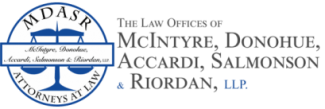By RIDGELY OCHS ridgely.ochs@newsday.com
Worry and wait.
Almost 11 years after 9/11, first responders, many still dealing with stubbornly persistent illnesses, say they worry their health will only get worse. Cancer is the fear that stalks them.
“It weighs very heavy,” said Glen Klein, 54, of Centereach, a retired NYPD detective who worked more than 800 hours at the World Trade Center site in lower Manhattan. “When I wake up in the morning and I don’t feel well, the first thing that goes through my mind is ‘Oh, I got cancer.'”
Those who already have the disease fear they could leave their families with unpaid bills.
Dr. John Howard, director of the National Institute for Occupational Safety and Health, is expected soon to issue a final rule on which cancers will be covered under the James Zadroga 9/11 Health and Compensation Act, enacted January 2011.
In June, Howard issued a proposed rule expanding the list of illnesses associated with Ground Zero exposure to include about 50 cancers.
Sean Riordan, general counsel for the FealGood Foundation, a first-responders’ advocacy group, said Sunday he had heard “all the cancers look good for addition, but nothing is final until NIOSH says it’s final.”
Under the Zadroga law, $2.8 billion was set aside to compensate people made ill by exposure to toxins at the site. Another $1.5 billion has been allocated over five years to fund the World Trade Center Health Program, which treats and monitors about 40,000 first responders.
How many first responders suffer from cancer is unclear. Last September, the first major cancer study of city firefighters who worked at Ground Zero after the Sept. 11, 2001, attacks found they were 19 percent more likely to have cancer than those who weren’t there.
FealGood Foundation founder John Feal said his group has compiled an unofficial list of close to 400 responders with the disease. That number is likely to grow, given that cancer can take decades to develop and an estimated 40,000 people were exposed.
Ken George, 48, of North Babylon, who worked 12- to 16-hour days for months on the pile for the city highway department, said that when he went to a picnic for first responders on Long Island last year, there were five or six widows who had lost husbands to cancer.
“This year there were 10 to 15,” he said. “I was like, ‘Wow, how many are getting sick?’ ”
Manhattan attorney Michael Barasch said about 250 of the 5,000 first responders he represents have cancer.
“I’m trying to manage expectations and tell them that not every cancer will be found admissible,” he said. “Common sense tells me that probably respiratory and blood cancers will be covered. But nobody can give out any awards until we know whether the cancers are admissible. And they’ve got to make sure there’s enough money.”
About 300 first responders have submitted eligibility forms to a special master of the fund for diseases other than cancer now covered under the law that are in the process of being reviewed, according to Allison Price, a spokeswoman for the U.S. Department of Justice. “We expect more people to file as the fund progresses — it is hard to speculate, but thousands of additional claimants will most likely apply,” she said.
Some are concerned the fund could be quickly bankrupt if all cancers are covered, although New York members of Congress have vowed they will fight for more money if it’s needed.
For former city firefighter Jeff Stroehlein, 48, of Babylon, having all cancers covered is about the government doing what is right by the people who put their lives on the line.
In March 2011, Stroehlein was diagnosed with a rare lymphoma in his brain. He underwent months of chemotherapy and a bone marrow transplant last August. His last four MRIs have showed no sign of the cancer, he said.
“This isn’t just for me,” he said of the coverage. “This is for everybody else. First of all, I’m lucky enough to be talking to you. But what about the guy who could lose his house trying to pay his medical bills?”
Feal described a 47-year-old construction worker — a nonsmoker — who had worked on the pile and developed lung cancer. He had no health benefits, couldn’t work, acquired a mountain of bills, lost his house and had to move in with family members.
“We need to remember that having cancer added [to Zadroga coverage] won’t save anybody’s life,” he said. “It’s not a magic pill. But it will ease the financial burden and that’s the right thing to do.”
Chris Baumann, 49, of Lindenhurst, a city police officer in the traffic division who worked at Ground Zero on 9/11, said he has had precancerous polyps in his colon and granulomas in his thyroid. “Things keep popping up,” he said. “I’m always waiting for the big ‘C’ when I go to see the doctor.”
Knowing cancer will be covered would give him a measure of peace.
“I’m not looking to get rich,” he said. “I just want to live.”
Source: http://www.newsday.com/911-anniversary/zadroga-ruling-on-9-11-responders-expected-to-include-cancer-1.3986230

Leave A Comment